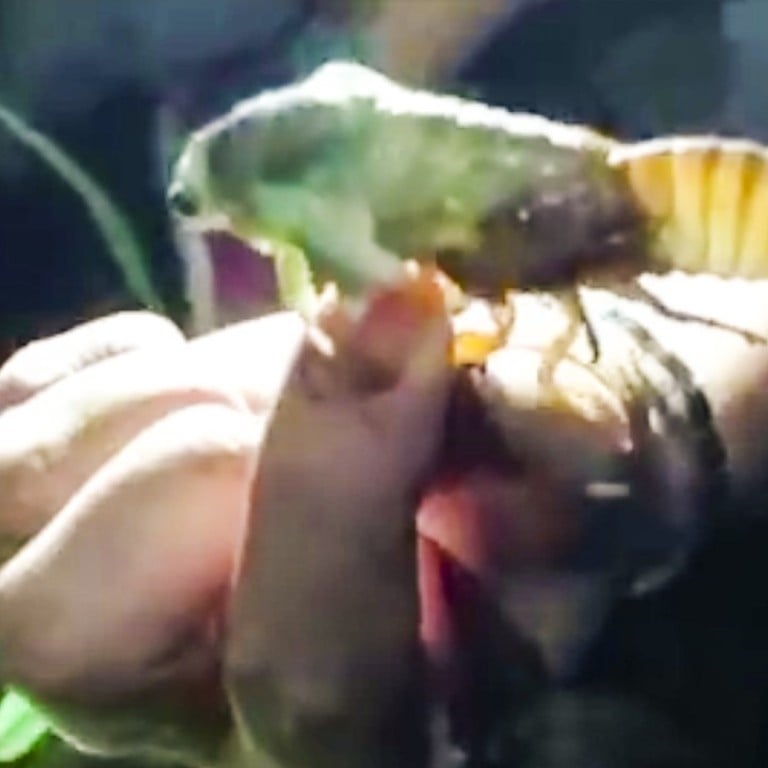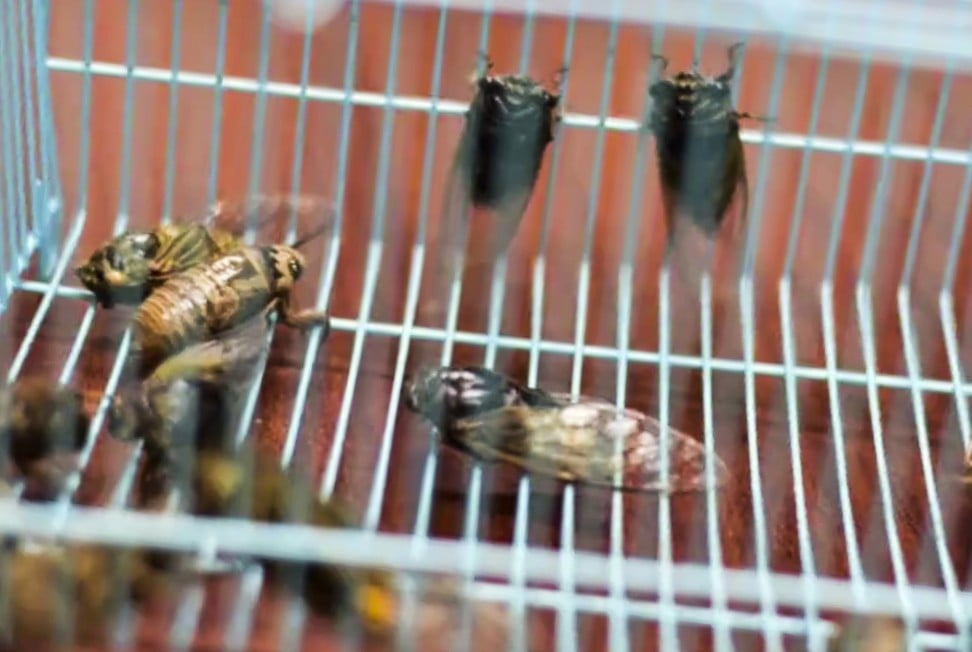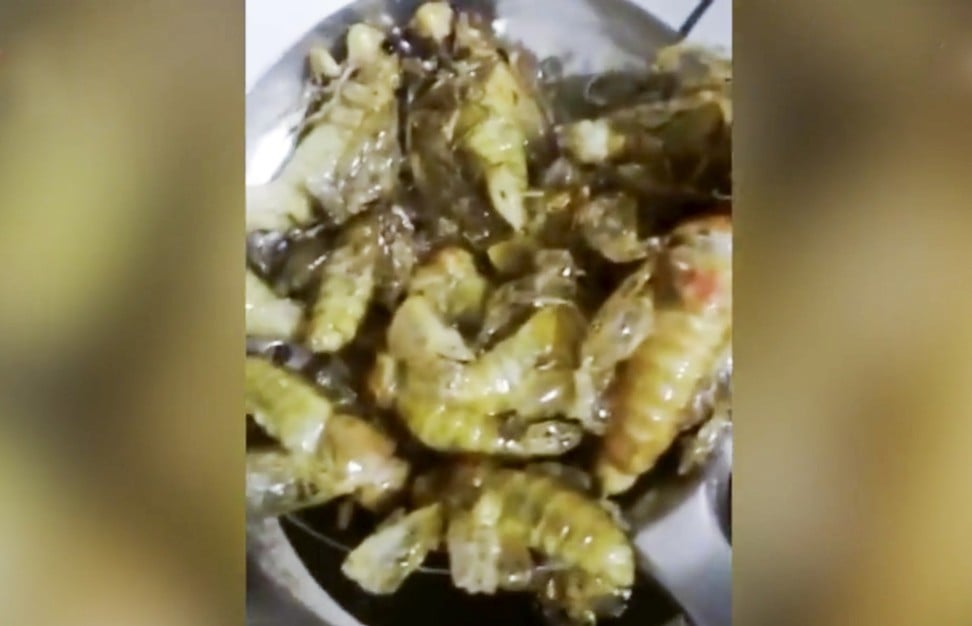
Chinese citizens urged to ‘eat a bug and save a tree’ as summer cicada glut threatens greenery
An official is hoping to start a trend for chomping on chirpy insects in a bid to stop them devastating willow and cherry blossom trees
Eat a bug and save a tree: that is the message being sent to the residents of an east China city where an annual explosion in cicada numbers is having a devastating effect on the local greenery.
The earnest appeal was made by Sun Xiaoping, the official in charge of green spaces in Hangzhou, capital of Zhejiang province, according to a report by local newspaper Dushi Kuaibao.
Cicadas reproduce in huge numbers in July and August, with the average female producing about 100 eggs at a time. When the young insects emerge they gorge on the sap of the willow and cherry blossom trees they call home.
Sun said the annual feast was killing local trees, and the best way to deal with the problem was for the local community to turn the tables on the creepy-crawlies and do some eating of their own.
“Every summer, we ask our staff to help catch the cicadas,” she said. “But we can’t keep up. So, foodies, come and help us.”
To Western ears, the request might seem strange, but for many people in Asian countries, protein-packed insects are a regular part of their daily diet.
Unfortunately for Sun, cicadas are not regarded as a delicacy in Hangzhou, although some people eat them - usually deep fried - and it is to that group she directed her appeal, the report said.
In Yongkang, also in Zhejiang, the summer cicada glut has spawned something of an annual event. People there have been known to munch their way through 5 tonnes of the chirping insects per day, and the city even has a street dedicated to cicada restaurants, according to an earlier report by Dushi Kuaibao.
Sun said she hoped the people of Hangzhou would be inspired by their neighbours.
People need not worry about upsetting the ecological balance, she said, as even if they filled their stomachs, they would not pose a serious threat to the insect population.
“There are simply too many of them,” she said.



